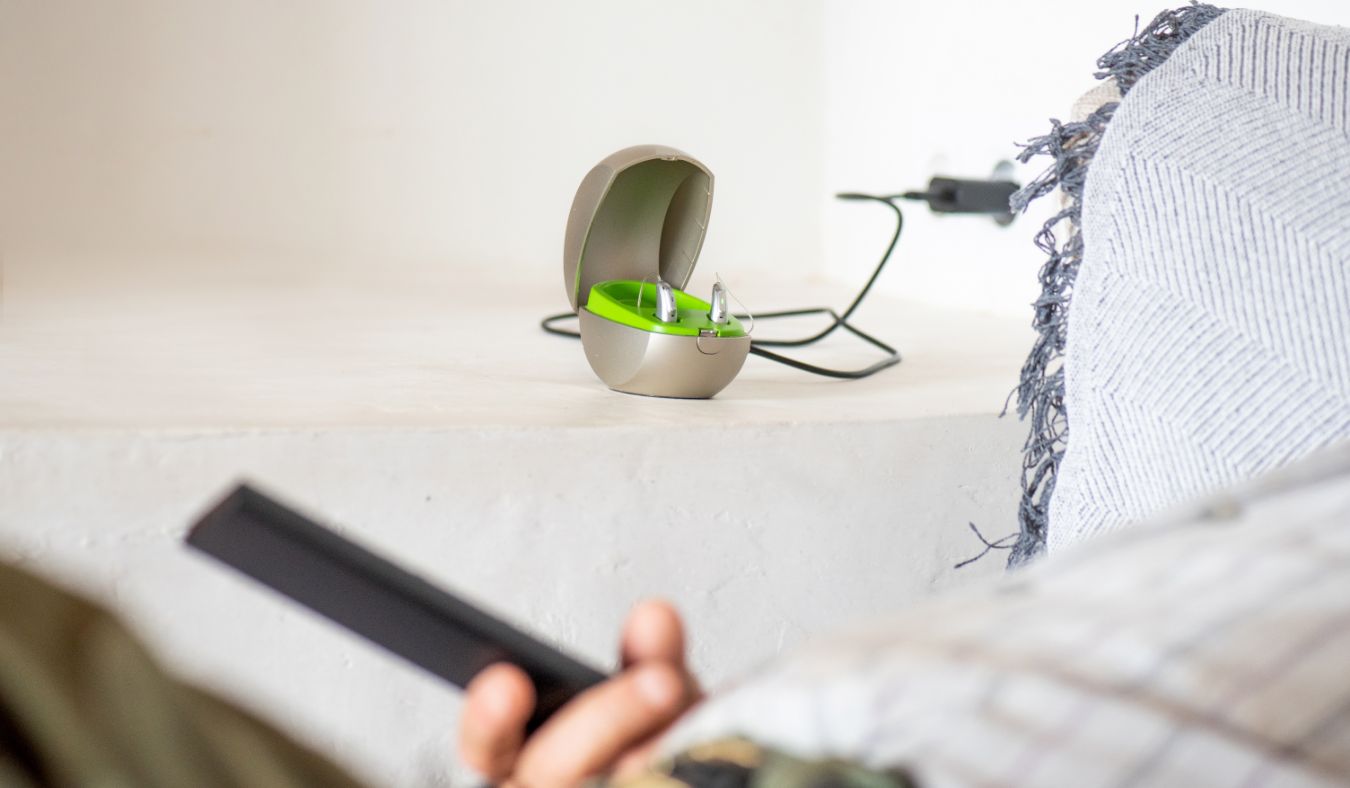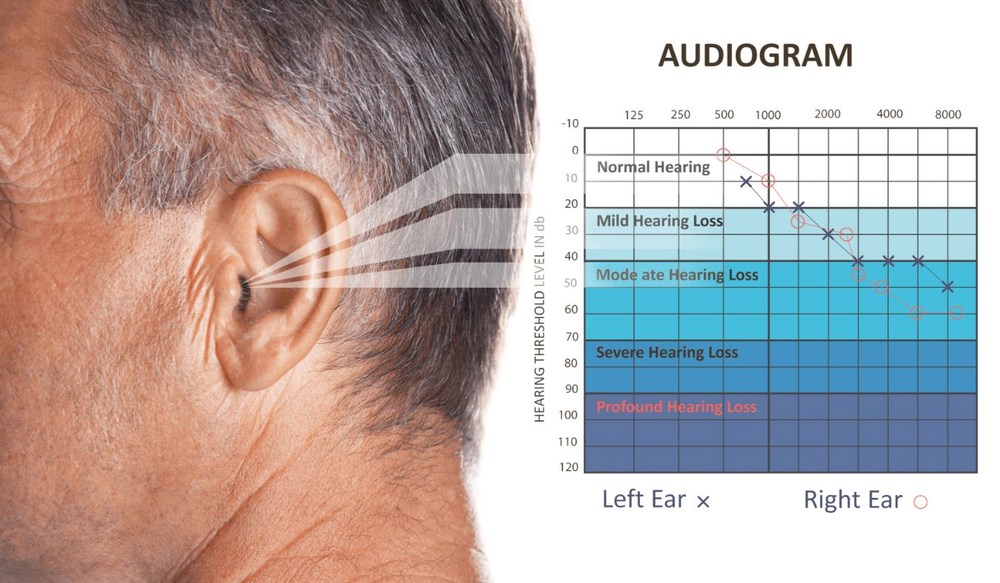The Role of Audiologists in Hearing Care & Hearing Loss Treatment
Audiologists are highly trained healthcare professionals who specialize in

By: admin | March 23, 2025
Hearing loss is a common issue that affects millions of people worldwide, and it can have a significant impact on one’s quality of life. Fortunately, with the help of advanced hearing aid technology, those experiencing hearing loss can regain the ability to communicate effectively and engage in the activities they love. At Professional Hearing Associates, we understand that selecting the right hearing aid style is a crucial step in your journey to better hearing. Our experienced audiologists, located in Escondido, CA, Oceanside, CA, and Poway, CA, are dedicated to guiding you through the process of finding the perfect hearing aid to suit your unique needs and preferences.
When it comes to hearing aids, there is no one-size-fits-all solution. Each individual’s hearing loss, lifestyle, and aesthetic preferences will influence the type of hearing aid that works best for them. To make an informed decision, it’s essential to understand the various hearing aid styles available on the market today.
BTE hearing aids are the most traditional style, consisting of a device that sits behind the ear and is connected to a tube that directs sound into the ear canal. These hearing aids are known for their versatility, as they can accommodate a wide range of hearing loss severities, from mild to profound. BTE hearing aids also offer the most space for advanced features and powerful amplification, making them a popular choice for many individuals.
RIC hearing aids are similar to BTE devices, but with a key difference: the receiver (or speaker) is placed directly in the ear canal, connected to the behind-the-ear component via a thin wire. This design allows for a more discreet appearance and a more natural sound experience, as the receiver is closer to the eardrum.
ITE hearing aids are custom-made to fit snugly within the outer ear, offering a more discreet option than BTE devices. These hearing aids are suitable for individuals with mild to severe hearing loss and can be designed to match the color of your skin for added discretion. ITE hearing aids offer a balance between power and discretion, with ample space for features like directional microphones and telecoils.
ITC hearing aids are smaller than ITE devices, sitting deeper within the ear canal. These hearing aids are even more discreet and are best suited for mild to moderate hearing loss. Due to their smaller size, ITC hearing aids may have more limited features compared to larger styles, but they still provide excellent sound quality and amplification.
CIC hearing aids are the smallest and most discreet option available, fitting entirely within the ear canal and virtually invisible to others. These custom-made devices are ideal for individuals with mild to moderate hearing loss who prioritize discretion above all else. While CIC hearing aids may have fewer features due to their size, they still offer clear sound amplification and are easy to wear for extended periods.
When working with your audiologist to select the perfect hearing aid style, there are several key factors to consider:
As we look ahead to 2025 and beyond, the world of hearing aid technology continues to evolve at a rapid pace. Manufacturers are constantly developing new features and innovations to enhance the user experience and provide even better sound quality and performance. Some of the most exciting advancements in hearing aid technology include:
One of the most significant trends in hearing aids is the move toward rechargeable batteries. In the past, most hearing aids relied on disposable batteries that needed to be replaced every few days or weeks. With rechargeable hearing aids, users can simply place their devices in a charging case overnight and enjoy a full day of use without the hassle of changing batteries. This not only provides greater convenience but also helps reduce the environmental impact of disposable batteries.
AI and machine learning are transforming the way hearing aids process and adapt to sound. Many modern hearing aids now feature advanced algorithms that can automatically adjust settings based on the user’s environment and preferences. For example, some hearing aids can detect when the user is in a noisy restaurant and automatically adjust the settings to provide clearer speech and reduce background noise. Other devices can learn from the user’s manual adjustments over time and adapt to their preferred settings in different situations.
Bluetooth technology has revolutionized the way hearing aids connect to external devices like smartphones, televisions, and music players. With Bluetooth-enabled hearing aids, users can stream audio directly to their devices without the need for separate accessories. This allows for a more seamless and immersive listening experience, whether you’re taking a phone call, watching a movie, or listening to your favorite playlist.
Feedback, or the whistling sound that can sometimes occur when a hearing aid’s microphone picks up sound from its own speaker, has long been a challenge for hearing aid users. However, recent advancements in feedback cancellation technology have made this issue much less common. Many modern hearing aids feature advanced algorithms that can detect and eliminate feedback before it becomes noticeable, providing a more comfortable and natural listening experience.
Tinnitus, or the perception of ringing or other sounds in the ears, is a common issue that often accompanies hearing loss. In recent years, hearing aid manufacturers have begun incorporating tinnitus management features into their devices. These features may include sound masking, which helps to cover up the tinnitus with a more pleasant sound, or relaxation programs that help to reduce stress and promote better sleep. As research into tinnitus continues, we can expect to see even more advanced tinnitus management features in hearing aids in the coming years.
The COVID-19 pandemic has accelerated the adoption of telehealth services across the healthcare industry, and the field of audiology is no exception. Many hearing aid manufacturers now offer remote adjustment capabilities, allowing users to fine-tune their devices from the comfort of their own homes using a smartphone app. This not only provides greater convenience for users but also allows audiologists to provide more efficient and accessible care to their patients. As telehealth becomes more widely accepted and technology continues to improve, we can expect to see even more opportunities for remote hearing aid adjustments and consultations in the future.
While the latest hearing aid technology is certainly impressive, it’s important to remember that the most critical factor in achieving success with hearing aids is working with a qualified audiologist. At Professional Hearing Associates, our team of experienced audiologists is dedicated to providing personalized care and support to each and every patient.
When you visit one of our offices in Escondido, CA, Oceanside, CA, or Poway, CA, you can expect a comprehensive hearing evaluation and a thorough discussion of your needs, preferences, and lifestyle. Our audiologists will take the time to explain the different hearing aid styles and features available and help you choose the option that best fits your unique situation.
Once you’ve selected your hearing aids, our team will work with you to ensure a comfortable and precise fit, as well as provide ongoing support and adjustments as needed. We understand that adapting to hearing aids can be a process, and we’re here to guide you every step of the way.
In addition to our in-office services, we also offer remote support and telehealth options for our patients’ convenience. Whether you have a question about your hearing aids or need a quick adjustment, our team is just a phone call or video chat away.
Investing in your hearing health with properly fitted hearing aids can have a profound impact on your overall quality of life. Some of the many benefits of treating hearing loss include:
At Professional Hearing Associates, we understand that investing in hearing aids is a significant decision. That’s why we’re committed to providing our patients with the highest quality care and the most advanced technology available.
If you’re ready to take the next step in your journey to better hearing, we invite you to schedule a consultation at one of our offices today. Our experienced audiologists are here to answer your questions, guide you through the process of selecting the perfect hearing aid style, and provide ongoing support and care to ensure your success.
Don’t let hearing loss hold you back any longer. With the right hearing aid style and the support of our dedicated team at Professional Hearing Associates, you can experience the many benefits of better hearing and improved quality of life. We look forward to helping you on your journey to better hearing!
Tags: hearing aid styles, hearing aid technology, how-to guides

Audiologists are highly trained healthcare professionals who specialize in
By: admin | March 23, 2025

Hearing loss is a common issue that affects millions of people worldwide,
By: admin | March 23, 2025

Hearing tests are an essential tool in diagnosing and understanding
By: admin | February 25, 2025
